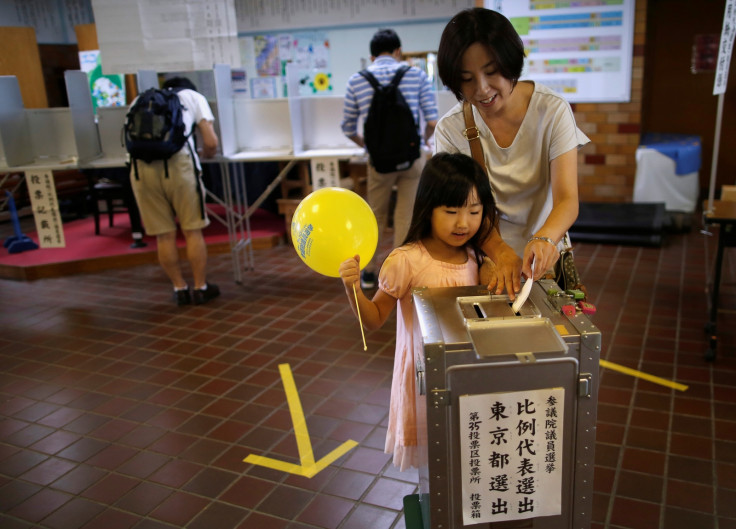Japan votes in upper house elections which could tilt balance of Diet
Prime Minister Shinzo Abe's Liberal Democratic Party expected to perform well at the polls.

Voting in Japan's upper house elections, which could potentially tilt the balance of its national parliament, Diet, is underway. If Prime Minister Shinzo Abe manages to clinch a victory, it could give him much-needed majority not just to push through economic reforms but also to potentially alter the pacifist constitution.
With 121 of the 242 seats up for grabs, 389 candidates are vying for a seat in the upper house, the less powerful in the bicameral legislature. More than 48,000 polling stations across the country opened at 7am and will close at 8pm. In a major change, the voting age has been brought down from 20 to 18.
The results will be announced shortly after the voting closes. The outcome would not affect Abe's position as prime minister.
Though support for Abe's Liberal Democratic Party (LDP) and his loosely aligned allies of hawkish conservatives has been lukewarm, Abe's side is widely expected to do well in the polls as the opposition, led by the Democratic Party, remains weak. What is of interest is whether the LDP and its junior coalition partner Komeito would secure a two thirds majority, which is needed to amend the war-renouncing constitution. Abe came to power in 2012 with a pledge to push through a set of radical economic policies and modify the US-imposed constitution.
"As in past elections, voters are likely to passively endorse the Abe administration due to a lack of alternatives," Koji Nakakita, professor at the Hitotsubashi University in Tokyo, told Japan Today.
Half of Japan's upper house goes to polls every three years as the members are elected for a six-year term.
Japan, the world's third-largest economy, has been suffering from chronic deflation in recent years and is in a dire need of massive reforms.
© Copyright IBTimes 2025. All rights reserved.






















